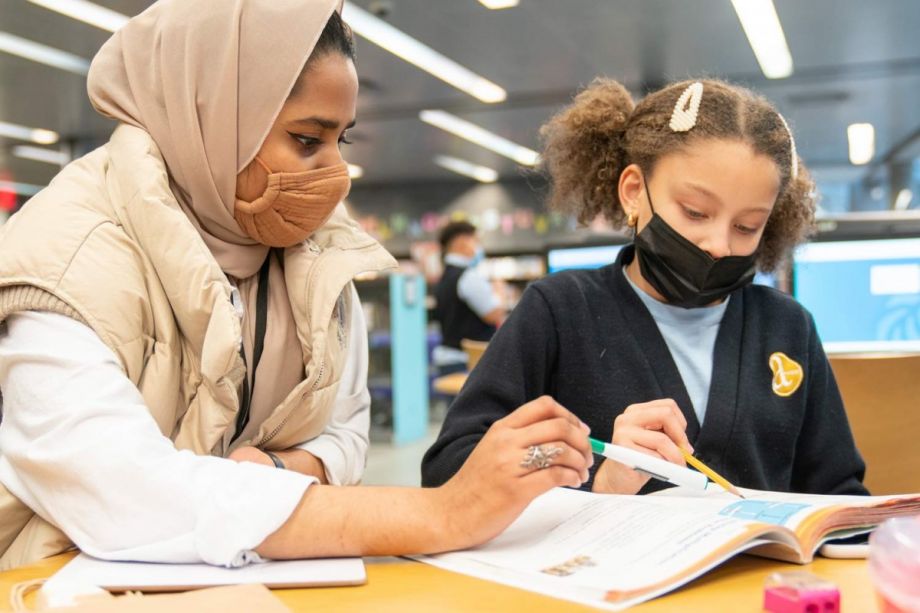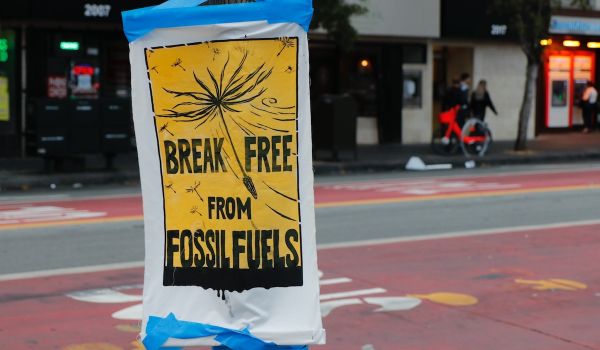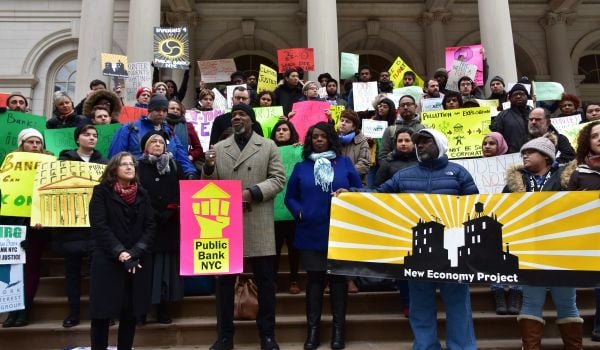In mid-January, New York’s Queens Public Library plans to reopen the Queens Library for Teens, an anchor in the Far Rockaway community since 2008 that’s been closed due to the pandemic. It will bring back much needed resources to the 33,000 young adults it previously served each year.
“It is more than just a library,” says Kim McNeil-Capers, the director of community engagement and outreach at Queens Public Library. “It’s a place where kids are comfortable, connect with other young people and have access to resources.”
The Queens Library for Teens is highlighted in a recent Center for an Urban Future (CUF) report titled Branches to Recovery: Tapping the Power of New York’s Public Libraries to Ensure an Inclusive Recovery and Rebuild a More Equitable City. The report argues that few institutions are better positioned to help New York become a more equitable city, especially during its COVID-19 recovery. “In many of the neighborhoods hit hardest by the pandemic,” CUF notes, “Libraries are among the only trusted resources for immigrants, teens, older adults, and those on the wrong side of the digital divide.”
The Queens Library for Teens opened because the Far Rockaways’ full-service library was small, heavily used, and had no dedicated space for teens congregating with nowhere else in the community to go. The storefront space, a block away from the main library, offers teen-friendly programming and collections, a relaxed set of rules, 24 computers with high-speed internet, a recording studio, podcast lounge, DJ booth, youth counselors, young adult librarians and youth workforce development workers. Programs like the pre-GED classes served over 200 youth per year.
McNeil-Capers was a youth counselor here before her current role with the Queens Public Library. In the Far Rockaways, she notes, “there are no movie theaters, roller skating rinks, there aren’t a lot of places for young folks — the teen library definitely offers that space.”
It’s an example of how NYC libraries offer much more than book lending. According to the report, libraries are the only public hub for small business services in 67 percent of New York neighborhoods, for career services in 64 percent of neighborhoods, for coworking space in 60 percent of neighborhoods, and for early literacy in 35 percent of neighborhoods.
Those programs play critical recovery roles, like helping address the digital divide, strengthen minority-owned businesses, and bolster language, literacy and tech skills for job seekers. The services, however, only meet a fraction of the demand, according to the study.
One example mentioned in the report is the New York Public Library’s program for drop-in homework help, which began as a six-week pilot in early 2020 at 10 library sites. “Kids naturally come into the library after school and there’s an occasional question about a homework assignment,” says Gesille Dixon, senior director of branch programs and services for NYPL. “We started looking into locations where they get requests for homework help and it was under-resourced neighborhoods where parents can’t afford an after-school program.”
The pilot was straightforward: a drop-in model that matches young people with adult tutors and trained (and paid) teens with younger children for homework help. NYPL switched to digital homework resources during COVID-19 and brought it back in-person in September 2021, expanding to 20 branches, with half in the Bronx. “Our early results have shown we’ve served 500 children across the 20 locations, with attendance over 2,000,” Dixon says.
With more resources, NYPL officials say they could expand to 30 or more sites for the 2022–2023 school year, with an anticipated 20,000 visits. The focus would be on neighborhoods where the impact of learning loss from the pandemic is high. “The opportunity to make this pitch to the city, and the new administration, is that we’ll get funding to roll this out,” Dixon says.
The report outlines a number of policy recommendations, including a major expansion of libraries’ hours, targeted funding for libraries to ramp up their most effective programs, and helping libraries take vital resources into places like homeless shelters, laundromats, public housing complexes, senior centers and playgrounds.
Issue-specific recommendations include drop-in homework help at branches in every hard-hit community, new business incubators in branches citywide, creating 10 new teen centers in hard-hit communities, and replicating popular programs in multiple languages.
To do it all, the report calls on incoming Mayor Eric Adams “to boost the libraries’ meager city funding from $432 million annually to $1 billion.”
To both McNeil-Capers and Dixon, the diverse roles libraries play, and their adaptability to community needs, make them an obvious choice to bolster equitable pandemic recovery. “We’ve taken on this charge of being a space where we’re providing education for everyone,” says Nixon. “It’s about bringing people in and engaging with them — and the pandemic has got people focused on these opportunities that the library provides.”

Emily Nonko is a social justice and solutions-oriented reporter based in Brooklyn, New York. She covers a range of topics for Next City, including arts and culture, housing, movement building and transit.
Follow Emily .(JavaScript must be enabled to view this email address)
















